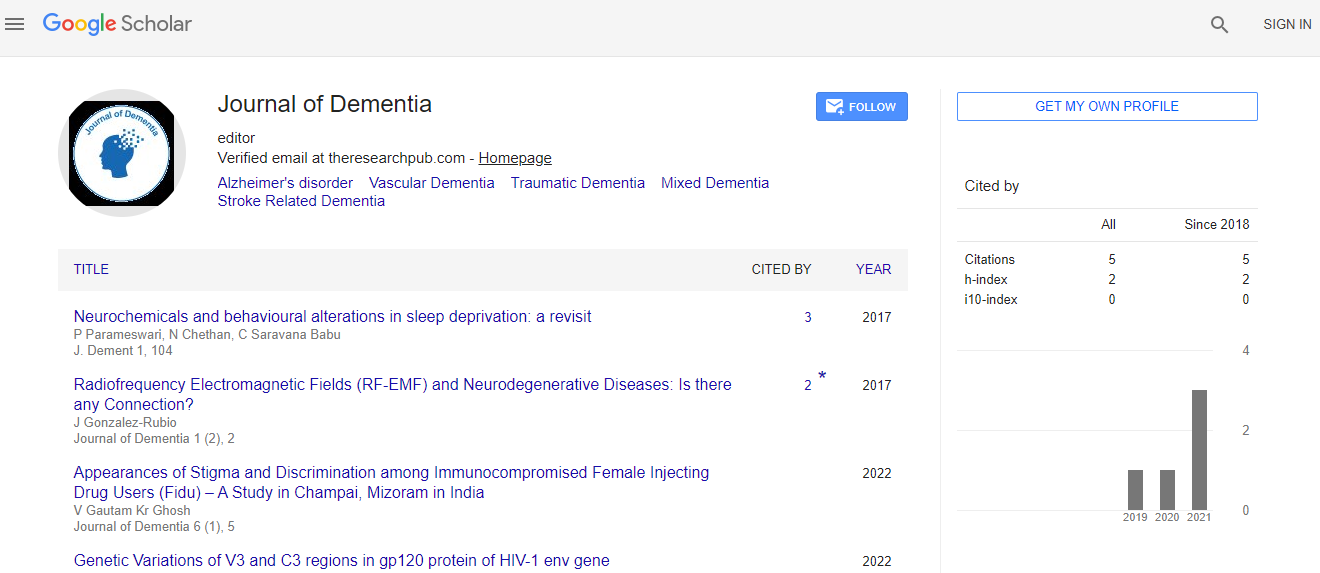Understanding Neurodegenerative Disorders: Unraveling the Complexity of Brain Degeneration
*Corresponding Author: Ranveer Rajat, Department of Pharmaceutical Sciences, University of Jammu and Kashmir, India, Email: ranveer_r@gmail.comReceived Date: Nov 01, 2023 / Accepted Date: Nov 28, 2023 / Published Date: Nov 28, 2023
Citation: Rajat R (2023) Understanding Neurodegenerative Disorders: Unraveling the Complexity of Brain Degeneration. J Dement 7: 183.
Copyright: © 2023 Rajat R. This is an open-access article distributed under theterms of the Creative Commons Attribution License, which permits unrestricteduse, distribution, and reproduction in any medium, provided the original author andsource are credited.
Abstract
Neurodegenerative disorders represent a heterogeneous group of chronic and progressive conditions characterized by the degeneration and loss of function of neurons in the central nervous system. These disorders encompass a wide range of conditions, including Alzheimer’s disease, Parkinson’s disease, Huntington’s disease, amyotrophic lateral sclerosis (ALS), and various forms of dementia. The etiology of neurodegenerative disorders is multifactorial, involving genetic, environmental, and age-related factors. The hallmark of neurodegenerative disorders is the gradual and irreversible loss of neurons, leading to cognitive decline, motor dysfunction, and a decline in overall quality of life. Aberrant protein aggregation, mitochondrial dysfunction, oxidative stress, and neuroinflammation are among the common pathological mechanisms observed in these disorders. The clinical manifestations vary widely, reflecting the specific regions of the brain affected and the predominant neuronal populations involved. Current diagnostic approaches for neurodegenerative disorders often rely on clinical assessments, neuroimaging, and biomarker analyses. Despite advances in understanding the molecular and cellular underpinnings of these conditions, effective disease-modifying treatments remain elusive. Therapeutic interventions primarily aim at symptom management and slowing disease progression, emphasizing the importance of early and accurate diagnosis. This comprehensive review explores the diverse landscape of neurodegenerative disorders, encompassing their epidemiology, clinical manifestations, underlying pathophysiological mechanisms, diagnostic modalities, and current therapeutic strategies. Additionally, emerging research directions, including precision medicine approaches, neuroprotective strategies, and potential disease-modifying interventions, are discussed. The interdisciplinary nature of neurodegenerative disorder research is highlighted, emphasizing the need for collaboration among clinicians, neuroscientists, geneticists, and other stakeholders to advance our understanding and develop effective therapeutic interventions.

 Spanish
Spanish  Chinese
Chinese  Russian
Russian  German
German  French
French  Japanese
Japanese  Portuguese
Portuguese  Hindi
Hindi 